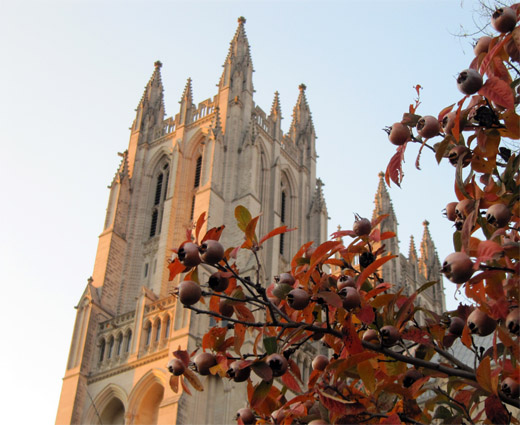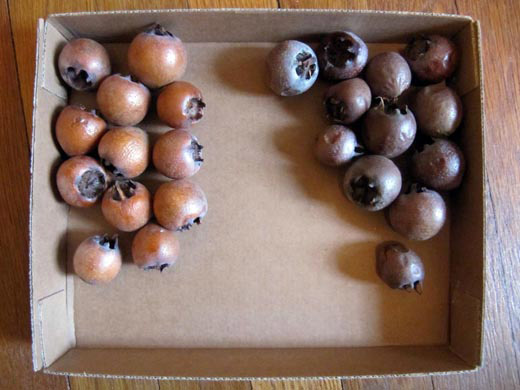The Bishop’s Garden at the National Cathedral is home to a medlar (Mespilius germanica, or die Mispel in German), a tree that was far more common in medieval gardens than it is now in North America. Its homely fruit are inedible until they “blett,” when they become little mush-balls that taste a bit like spiced apples and wine—but only after time and frost render them wrinkled and weird. This bellyacher knows that with medlars, timing is everything, even with noises that disregard sense but feel right on the tongue.
MEDLAR SONG
Til we be rotten, kan we nat be rype.
—Chaucer, “The Reeve’s Prologue”
In sawdust ruts, the roots encroach
On walls where wintered widows poach.
Hear sepals peep what reeves forgot:
Fast we ripen; first we rot.
A ritter rests. His jonquil dream
Shall reck in every rustling beam
What shrivling scops by lines allot:
Fast we ripen; first we rot.
A shovel drudge, his leafs mislaid,
Fears bishops, like their mispels, fade,
But sets aside the lightest plot:
Fast we ripen; first we rot.
A goblin sunders thist and thorn
By mispel moonlit shade, to mourn
One perfect pearl she misbegot:
Fast we ripen; first we rot.
Now pray we bless the bletted mess,
That fine and blither minds profess
To round the rinds that rime did not.
Let them ripen; let me rot.

The medlar in the Bishop’s Garden, autumn 2010:

Medlar fruit (harvested with permission of the cathedral), unbletted and bletted, December 2010:

(For all the entries in this series, hit the “looking up” tab, or read the gargoyle FAQ.)

Hurrah for medlar poems!
LikeLike
I’m going to the back yard before the snow arrives to recite the poem to my Medlar infants in hope they will some day bear fruit.
LikeLike